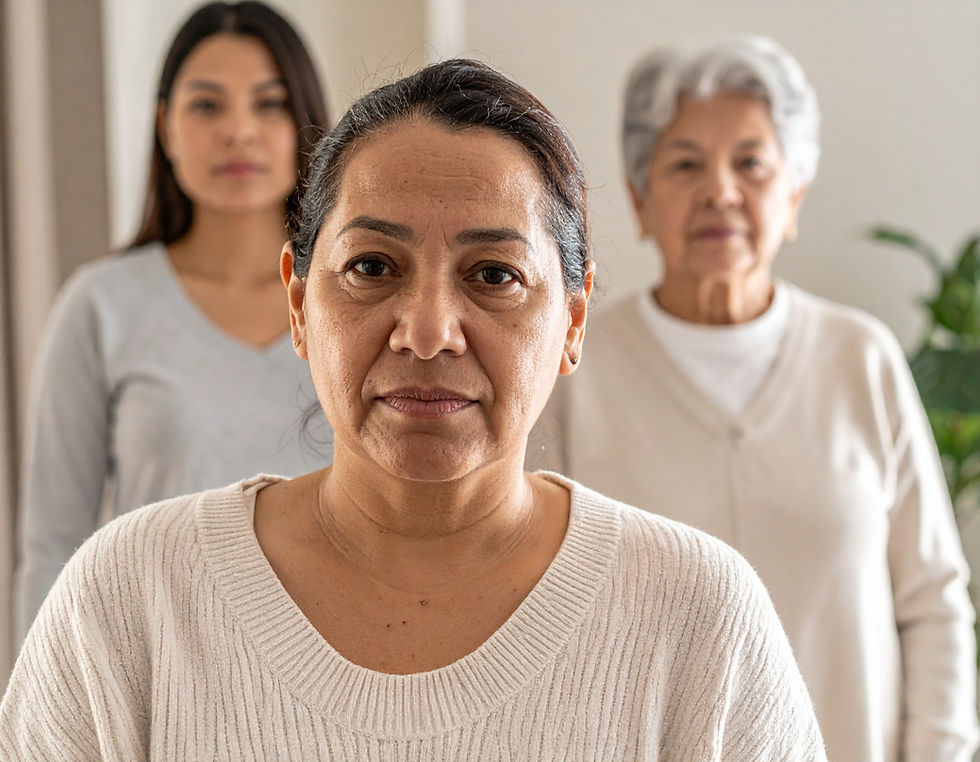The Journey from Sorrow to Joy
- Kaye Olsson

- Sep 3, 2021
- 4 min read
Updated: Nov 7, 2024
By Kaye Olsson, I Start Wondering Columnist

Photo by Munro Studio on Unsplash
My husband was an alcoholic. He eventually died from complications of liver cirrhosis. The years leading up to his death were pure hell, for both of us. After his death I caught myself feeling guilty for all the things I should have done or should have said. But then I slowly realized the me of today is quite different from the me of the past, with knowledge and experiences the old me didn’t have. A perfect person would have known exactly what to do—but I’m not perfect.
I did not recognize the symptoms of alcoholism and I don’t believe my husband did either. I did not recognize the addiction as a disease but rather blamed his behavior on laziness and selfishness. The anger and resentment built up inside and ate away at me. Marriage was supposed to be a partnership, but my partner wasn’t participating. We were newly retired, and I was excited that we finally had the freedom to travel and explore all that life had to offer. I couldn’t wait to get out and experience the opportunities we had put off during our working years. It was confusing and infuriating when he chose to sit in his recliner instead, drinking beer and sleeping in front of the TV day after day. Worst of all, he died and left me alone.

Photo by Chris Rhoads on Unsplash
Gifts of Grief
The grieving process has given me much time to reflect and try to make sense of it all. I still don’t have an explanation for why he chose alcohol over life–or if it even was a choice–but that’s no longer the point. Instead of wondering what happened, I’ve started taking stock of my current circumstances. I’m the one who is still here, I’m the one who is alive, and it’s up to me to make the most of my remaining time.
My experience is by no means unique. We all go through difficult periods that can make us feel sad or uncomfortable. The loss of a loved one, a disappointing job outcome, or a scary medical diagnosis can send our lives spinning out of control. But, oddly enough, it’s often the hard times that can bring us to the realization that each day is a gift and worthy of joy.
Finding Joy
So, how do we go about transforming our sorrow into joy? My first piece of advice is to be kind to yourself. Just as a physical injury requires time to heal, an emotional injury does as well. Start by recognizing that those feelings of sadness, rejection, betrayal, or whatever they may be, are real. They are legitimate emotions and are nothing to be ashamed of. Feelings are not “right” or “wrong” but are normal parts of being human. Give yourself some extra space, focus on doing little things that soothe your soul —simple items like a warm cup of tea, petting a furry friend, or appreciating a sunrise–and be patient.

Sunset photo that Kaye took
Another approach is to reframe. For example, instead of spending energy feeling sorry for myself or wishing things had turned out differently, I am learning to change my perspective. To reframe an experience, it’s important to acknowledge the initial thoughts and emotions we are having, then ask ourselves how we could view things differently. We can then start to focus on a positive aspect of the situation instead of wallowing in the sadness. It does not change what has happened to us, but it does alter our mindset and help to control our reactions. In her book When Things Fall Apart*, author and teacher Pema Chodron writes that feelings of suffering “soften us and ripen our heart.” Reframing our negative reactions to a painful experience can become the foundation for empathy and lead to a better understanding of others.
A final technique involves rituals. Dr. Laurie Santos, a Yale University professor who researches the science of happiness, says that conducting a ritual after a sad experience can give us a chance to embrace our memories, honor our grief, and give us a sense of closure. Writing a letter and then tossing it into a fire, spreading a loved one’s ashes in a sacred place, gathering with friends or family to celebrate previous happier times—these are all examples of rituals. It can be serious or silly, public or private. Anything that is meaningful to you will work. Rituals help us restore a feeling of control over an otherwise uncontrollable situation.
Healing does not happen overnight. It is a gradual process and there are likely to be setbacks along the way. The reality is that a remnant of emotional trauma is always there, and never completely leaves us. But we can be grateful for those painful events that leave scars on our hearts. Because it is through them that we learn empathy and compassion for others who are going through similar circumstances. This is how we can truly turn our sorrow into joy.
Have you experienced grief? How have you worked through these feelings?
*Proceeds from the purchase of these books will be used to support I Start Wondering's programming for women who have reached mid-life and beyond.




Thank you so writing so honestly about your husband's death. This passage is so hard to navigate and we each do it differently. The challenge is not to get stuck in the grieving, because death represents the opening of a new chapter in life. I admire how you've made this next chapter your own through healing mentally and emotionally and making choices that are giving you the life you want. Thank you for being such a role model to us all!